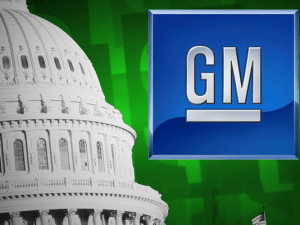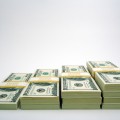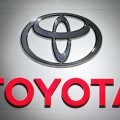
(Photo: The Associated Press/WKYC/Vince Fratiani)
The automobile industry continued its rebound this week from the depths of the recession, with the federal government announcing it will sell its stock in General Motors and advisors with once-broke Chrysler projecting a $10 valuation for the company.
The United States Treasury Department announced this week that it is selling the final 31.1 million shares it holds in GM. This will end taxpayers’ investment in the giant auto maker, which faced bankruptcy in 2008 before being bailed out by then-President George Bush and, later, President Barack Obama.
The government also will withdraw from overseeing the car company’s business dealing, opening the way for General Motors executives to have access to $26.8 billion in cash.
The industry is being helped with the best year in sales since 2007. All the three major American automakers – GM, Chrysler and Ford – are profitable. Ford did not get a government bailout.
Industry experts told Bloomberg Businessweek that the government pullout will likely lead to a dividend for stock holders and an renewed interest in investing with the company.
“The first step will probably be a dividend. That will be a significant move toward normalcy as they become a truly publicly traded company. They’ll also be able to pay executives more money, which has been a constant complaint,” Michelle Krebs, an analyst at auto researcher Edmunds.com, told Businessweek.
Part of the good news, from the point of view of GM, is that the company can now offer more pay and bonuses to its executives. During government oversight, this was not allowed. The end of such restrictions could allow GM to look outside the company for a replacement for CEO Dan Akerson, who is nearing retirement.
The government has recovered about $37 billion of the $51 billion it loaned the car company. Since the bailout, the company has been completely reconstructed.
In another sign of an improving auto industry, Chrysler is hoping to have a valuation of about $10 billion before its stock offering, which may happen as soon as December. That’s a far cry from 2009, when the company was essentially worthless before Obama ordered a bailout, according to Bloomberg.





